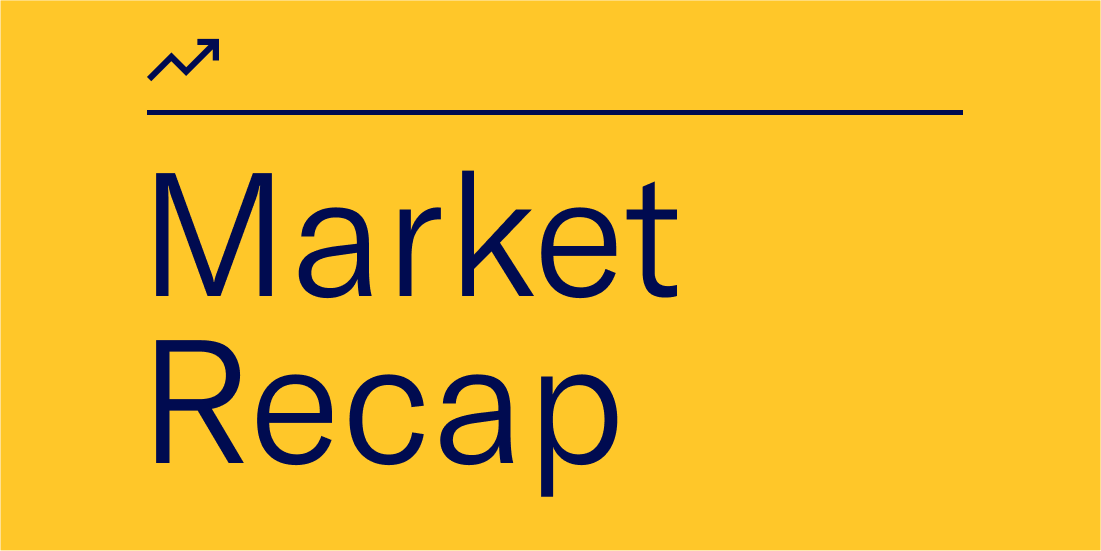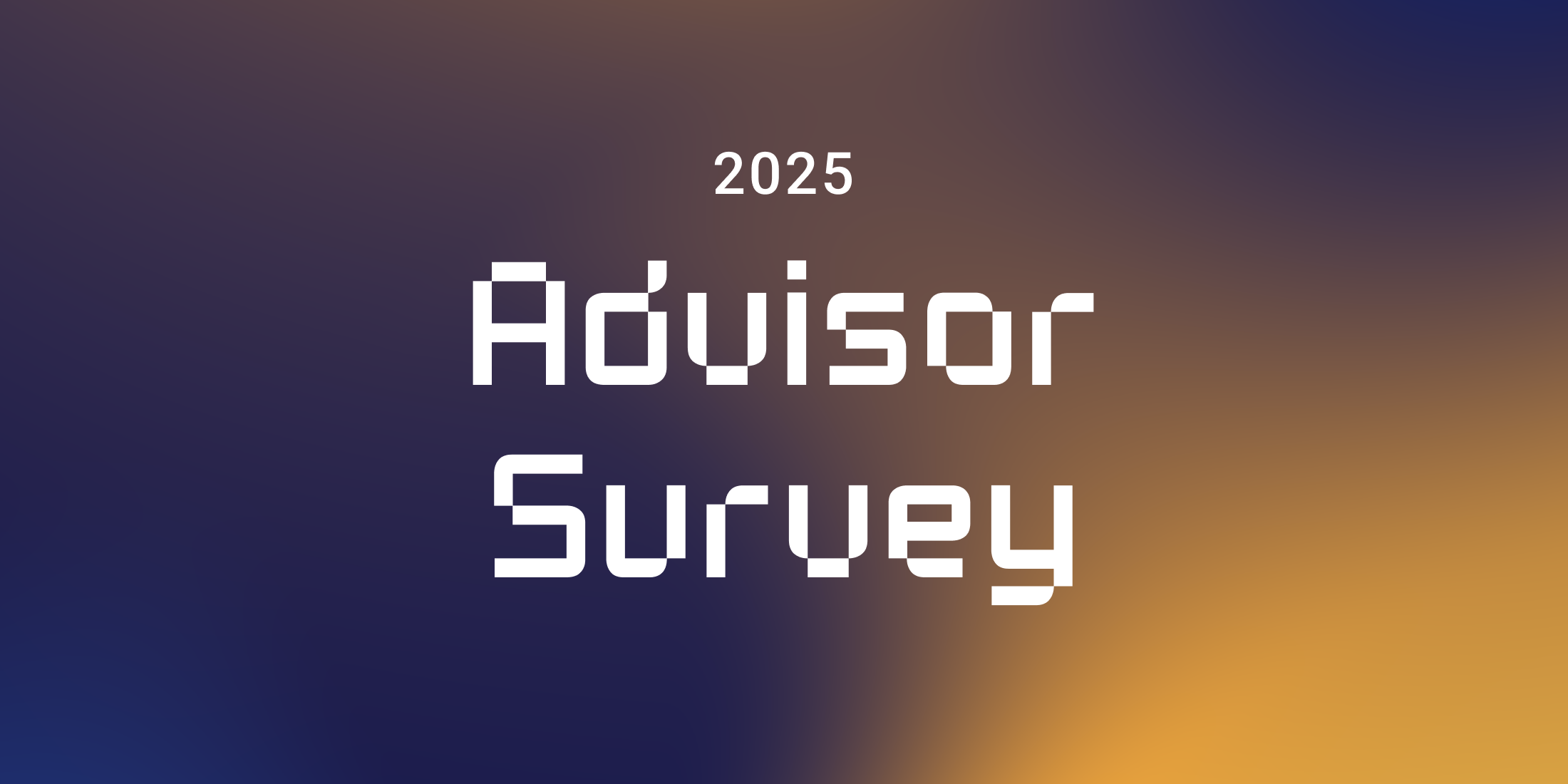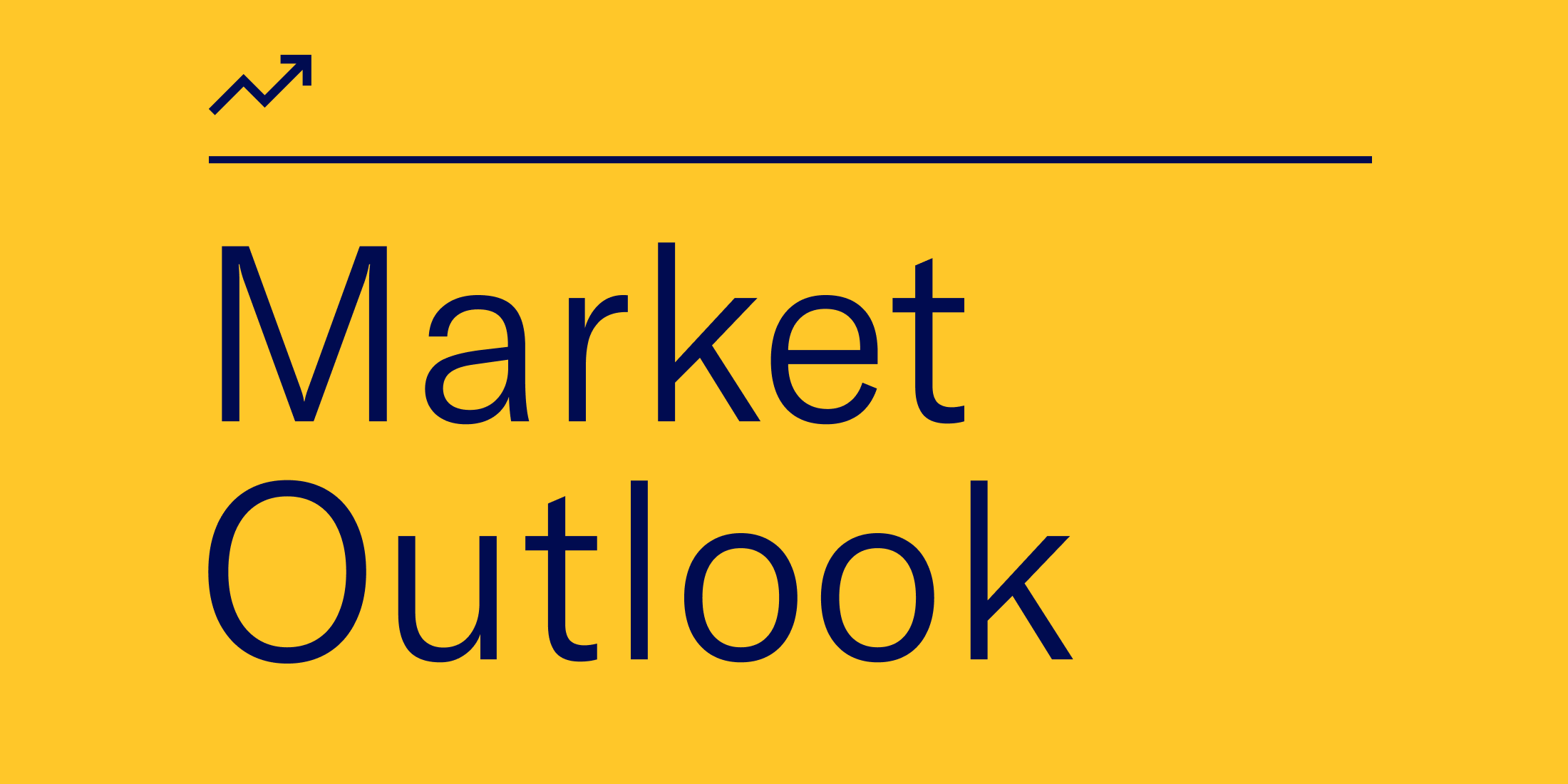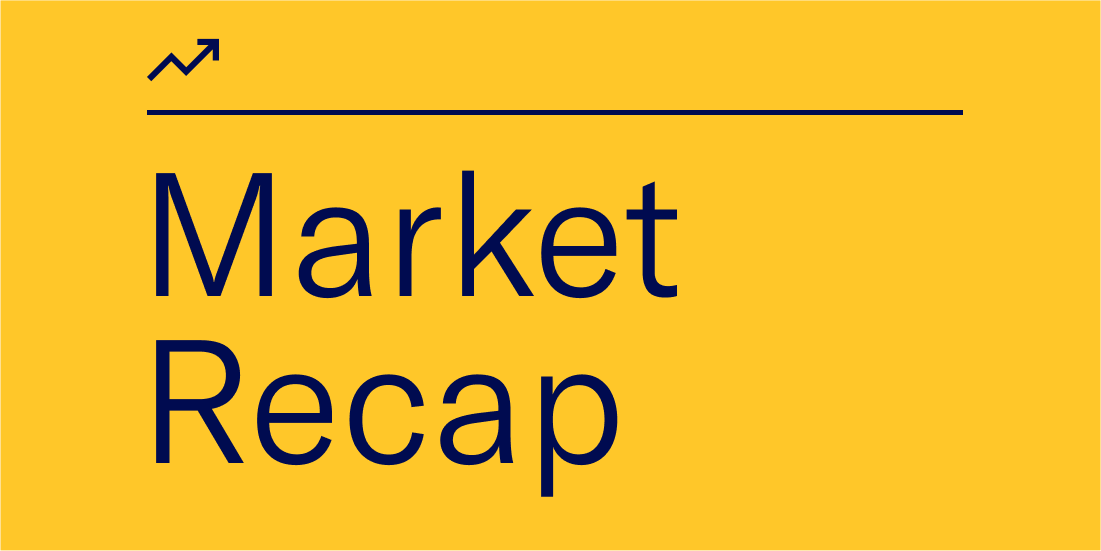Expert Insights
See all articles
-

April 2025 market update: Tariff and investment insights
April 2025 market update: Tariff and investment insights Rising tariffs, market swings, and policy shifts fuel economic uncertainty—discover how diversification can help investors stay grounded. Former European Central Bank President Mario Draghi once described the challenge of decision making amidst ambiguity as: “You just do what you think is right and you temper…. In other words, in a dark room, you move with tiny steps.” For business leaders and investors, the economic landscape has appeared murky of late, and for good reason… The threat of tariffs has become a reality, not just a negotiating tactic, causing uncertainty to pervade expectations for the economy and markets. President Trump just rolled out his most expansive round of global tariffs yet, at levels worse than anticipated ahead of the April 2 announcement. Although USMCA-compliant goods—like dairy and sugar imports from Canada and Mexico—will continue to enjoy a 0% tariff under the trade agreement, non-compliant goods will be subject to higher tariffs. Other countries, including major U.S. trade partners such as China, Taiwan, Vietnam, India, and South Korea, will face significant tariff rates on exports to the U.S., all apparently over 20%. China has notably retaliated against the imposition of tariffs, levying their own 34% tariff on all imports from the US, matching the level of the White House’s reciprocal tariffs on Chinese products. Federal Reserve Chair Jerome Powell has warned that the impact of new tariffs is likely to be significantly larger than expected and could cause higher inflation as well as weaker growth. Read: Making sense of market volatility The state of economic uncertainty But uncertainty isn’t just showing up in market action—it’s in all kinds of data sets. To track uncertainty, researchers create indices that analyze both news reports and economic forecasts, using data to measure the extent of uncertainty. Two key measures—Headline Policy Uncertainty and Trade Policy Uncertainty (shown above)—reveal that economic uncertainty has climbed to its highest levels since the pandemic. Trade policy, specifically, has jumped to levels never before seen in as long as there has been available data, going back to 1960. As the economy shows signs of slowing (growth in Q4 of 2024 was +2.3% compared to +3.1% in Q3, and +3.0% in Q2), the ripple effects of uncertainty are showing up in key indicators of consumer and manufacturer sentiment. In the first quarter of 2025, the University of Michigan’s Consumer Sentiment Index for employment conditions nosedived to levels last observed during the global financial crisis of 2008. U.S. equity markets have clearly taken notice. The S&P 500 has sold off sharply, and even other risk assets such as crypto have plummeted. And, all of the Magnificent 7—the cohort of megatech stocks, including Amazon, Apple, Meta, and Google—have slid over 20% from the latest 52-week high. So, what does this mean for the market While markets have taken a shellacking so far this year, international stocks have served as some consolation. Year-to-date, international developed market stocks have outperformed their U.S. peers by over 10 percentage points. After U.S. stocks outpaced global markets in 2024, the tariff turbulence, as well as more attractive valuations and new stimulus measures from China and Germany, have flipped the script in early 2025. What does this mean for investors Diversify, diversify, diversify. While this kind of noise around trade policy isn’t normal, the market experiencing bouts of volatility is normal and something investors are required to manage over time. Although other asset classes, like international stocks and bonds, have not matched the performance of U.S. stocks in recent years, these assets can help dampen volatility in a period of heightened uncertainty. Diversification can help investors avoid being tied to any individual stock, asset type, or even a country’s performance. For example, the Betterment Core portfolio is globally diversified and has delivered 9.0% annual returns (after fees) since inception.1 Although the future might seem more unknowable right now, one thing we do know is that trying to time the market as policies change is a fool’s errand. Our investing team is here to keep you up-to-date on macro-trends and market insights, so you can make informed decisions for your clients. As of 12/31/2024, and inception date 9/7/2011. Composite annual time-weighted returns: 12.7% over 1 year, 7.9% over 5 years, and 7.8% over 10 years. Composite performance calculated based on the dollar-weighted average of actual client time-weighted returns for the Core portfolio at 90/10 allocation, net of fees, includes dividend reinvestment, and excludes the impact of cash flows. Past performance not guaranteed, investing involves risk.4 min read -

2025 stock market outlook: 3 insights from a financial expert
2025 stock market outlook: 3 insights from a financial expert Our financial expert weighs in on investing amid market highs, AI optimism, and political uncertainty—and why diversification is key. Investors are starting to feel a healthy dose of cognitive dissonance, otherwise known as that grating feeling when two beliefs you hold don't quite line up. On one hand, the U.S. market is soaring on the back of AI optimism and potential tax cuts. And on the other, companies’ stock prices, relative to their actual earnings, are starting to loosely resemble the run-up to the Dotcom bubble of the late 90s. So which belief will win out in 2025: boom or bust? Let's parse this conflicted outlook by examining three questions in particular: Are U.S. stocks overvalued? Will AI pan out? Do markets care who’s in the White House? Are U.S. stocks overvalued? Around this time last year, we said the booming market at the time might keep going if the Fed lowered interest rates in response to cooling inflation. Interest rates did tick down, and boy, did markets take notice. Through the end of November 2024, stocks in our Betterment Core portfolio returned roughly 17.6% year-to-date. Such a run, however, begs speculation of yet another reversal, a swing of the pendulum toward less frothy valuations and a drawback in portfolio returns. The S&P 500 currently costs about 25 times more than what those companies are expected to bring in over the next 12 months. For comparison, this average “price-to-earnings” ratio over the last 35 years has been 18x. While stocks in the US certainly appear flush in terms of the value assigned to them, perspective matters for the long-term investor. When companies go for more than their “intrinsic” worth, there’s more potential downside than when they don’t. So long as one invests for more than a few years, chances are the market as a whole may “grow” into its valuation. Remember in 2021, when a cohort of stocks were darlings of the pandemic period and shot to the moon? Analysts rightly called foul—those kinds of valuations shouldn’t be sustainable. But within a few years the market was setting fresh all-time highs. An investor who had sold or stayed on the sidelines would've missed out on all that growth. If there’s a lesson to learn here, let it be this: Historically, Investing at all-time highs hasn’t resulted in lower future returns compared to investing on any given trading day. On the contrary, buying when the market has never been higher leads to slightly higher average returns in the long run. You can never be sure exactly when a growth cycle will end. Will AI pan out? Speaking of the stock market reaching previously uncharted heights, another reason for this bullish spell has been optimism surrounding the potential value of artificial intelligence, and the infrastructure that powers these underlying models. Large tech companies that provide cloud services—like Nvidia, which furnishes hardware that powers AI—have rallied strongly over the last 12 months. This clique of stocks, which overlaps with a group of mega-sized firms known as the Magnificent Seven (Google, Amazon, Microsoft, Meta, Apple, Tesla, and Nvidia), makes up an increasingly large share of the US and global stock market. So, what does the Mag7’s outperformance, and the hoopla around AI mean for the future? Some say a bubble, some say the early innings of a fully-automated techno-utopic future. Analysts have argued that a good amount of corporate America’s investment in AI capabilities will not ultimately prove fruitful. Yet it remains difficult to use the technology, and to witness the pace with which it has evolved, and not foresee eventual significant boosts to the economy’s productivity and companies’ profitability. There’s that grating feeling again—the potential of revolutionary upside sitting right next to worries that it’s mostly hype. In the face of uncertainty, all one can do to lower their risk is hedge their bets and diversify. Betterment’s Core portfolio, as well as our other portfolio options, invest globally, which means that while they maintain significant exposure to large US stocks including the Mag7, they also hold European, Japanese, and emerging market stocks that trade at less elevated valuations, providing a buffer in the event of a U-turn in the AI juggernaut. Do markets care who’s in the White House? Right now, markets aren’t sure exactly what to make of President-elect Trump’s proposed economic agenda. Promises of corporate tax cuts, while fueling the recent surge in stocks, could in practice increase inflation. Same goes for tariffs and mass deportation. Stricter immigration policies could simultaneously worsen labor shortages in certain industries, constraining economic growth and keeping inflationary pressures elevated. And, rising inflation could in turn pause or reverse the recent trend in interest rate cuts. But until more details emerge, or the policies themselves are actually put into practice, we won’t know their full effect. Despite the policy uncertainty and cognitive dissonance, keep in mind that markets tend to rise over time, regardless of which party holds the presidency. Maintaining a consistent, diversified investment approach is the best way to navigate political and economic cycles. So what now? As always, the risks associated with a down cycle exist alongside the opportunity of a growth cycle, so err on the side of staying invested. And, if you find your clients are sitting on too much cash, now might be the time to act and put it to work in the market. You can also recommend they invest it as a lump sum, which research shows may offer higher potential returns over time. Or, sprinkle it into a portfolio over time. (We make it easy to invest funds from Cash Reserve account, either way.) And however the market performs in 2025, you should remain confident that investing can help your clients reach their financial goals in the long-term.5 min read -

How Gen Z and Millennial advisors balance AI risks with tech growth
How Gen Z and Millennial advisors balance AI risks with tech growth The financial advisory industry is undergoing a transformation. Shifting demographics, rapid technological advances, and economic volatility are reshaping how advisors work and who they serve. With a new generation of RIAs entering the profession and younger clients making up a growing share of the market, new perspectives are emerging—on the economy, on technology, and on the very role advisors play in managing investments. Perhaps the most indelible shift of all, is the accelerating pace of AI, requiring advisors to revise how they deliver value to the next generation. In the second installment of our Advisor Survey, Betterment Advisor Solutions spoke to 500 independent RIAs, to find out how financial advisors are responding to the shifting financial planning landscape. Not surprisingly, many advisors (53%) report using AI to stay current with industry updates. And that’s not all, adoption of AI tools has climbed 10% since this time last year. However, the majority of advisors (65%) say they are worried about clients turning to generative AI platforms for financial advice. While AI is already making advisors’ lives easier, it also presents new challenges around client trust, accuracy, and the role advisors play in managing their clients’ wealth. How advisors are using AI As financial advisors wrestle with the paradox of AI, there are some areas we’re seeing Gen Z/Millennials and Gen X/Baby Boomers agree on: AI over social: 53% of advisors now use AI to stay current with industry updates, surpassing social media (48% in 2025, down from 59% in 2024). Positive impact: Overall, advisors are mostly positive about AI's impact, with more Gen Z/Millennials being "very positive" (45%) than Gen X/Baby Boomers (37%). Client misuse: While advisors are finding important use cases for AI in their own work, they’re concerned about clients using AI for financial advice (65%). Their top concerns are the lack of regulation and oversight in Generative AI providing financial advice, increasing the likelihood that clients will misinterpret or receive inaccurate financial advice from Generative AI platforms. But from there, key differences divide younger and older generations. For instance, Gen Z/Millennials tend to lean into AI for administrative tasks (like note taking and meeting recaps) as well as fraud detection; whereas Gen X/Baby Boomers use it more for client communication and portfolio management. The generational divide in AI adoption reveals that the technology is being shaped by client needs, not necessarily by advisor preferences. – Dan Egan, VP of Behavioral Finance and Investing at Betterment As digital natives, younger financial advisors have deeper concerns about the omnipresence of AI and so-called “ChatGPT financial advisors.” Although they might be more cautious about how AI is used, our survey shows that these advisors are perhaps better equipped to manage the financial planning needs of the Gen Z/ Millennials clients, who are looking for a seamless, modern way to manage their money. The way advisors balance caution with innovation will reshape the financial planning journey. To dive deeper into how RIAs across generations are viewing AI, technology, and shifting client expectations, download our latest survey below.3 min read
-

AI-driven markets and what advisors should watch in 2026
AI-driven markets and what advisors should watch in 2026 Jan 9, 2026 9:13:18 AM Key market trends advisors should keep an eye on in 2026, including AI-driven valuations, monetary policy shifts, and macro risks affecting stocks and bonds. U.S. markets closed out 2025 with strong headline returns, driven largely by continued enthusiasm around artificial intelligence and a small group of mega-cap technology companies. At the same time, familiar late-cycle questions resurfaced: Are valuations running ahead of fundamentals? And how much patience will markets have for profits that remain more theoretical than realized? Below, we look at what impacted performance in the fourth quarter of 2025 and what financial advisors should be watching in 2026. We cover elevated AI valuations, evolving monetary policy expectations, and the key macro risks that could reshape the outlook for both equities and bonds. AI-driven returns dominated markets in Q4 Stocks rallied in 2025, driven largely by Big Tech companies racing to develop transformative AI. However, that enthusiasm increasingly reflects expectations about future profitability rather than earnings today. And all of those businesses’ investments in AI infrastructure have turned up the volume on talks of an emerging AI bubble. Valuations highlight growing reliance on future AI profits One of the clearest signals of elevated market expectations is the price-to-earnings (P/E) ratio, which compares current prices to current profits. How much are people paying to own the market, in other words, relative to its current profits? If this ratio gets high enough, investors start to ask themselves whether such a steep cost is worth it for a piece of those earnings. Sometimes investors seek out better relative value—one reason international stocks outperformed in 2025—and sometimes they continue paying a premium for growth. But that dynamic becomes increasingly pinned on hopes of hypothetically larger profits down the road, not the earnings generated today. So just how big are those AI hopes right now, and how relatively expensive is it for a share of the U.S. stock market’s earnings? We’re not at dot-com bubble levels, but we’re getting close. AI investment spending is reshaping market leadership Companies are committing enormous capital to expand their computing capacity, betting that scale and infrastructure will be critical to realizing AI’s long-term potential. As those investments have played out, the market has begun to highlight certain players, rewarding firms seen as better positioned to translate spending into durable earnings while penalizing those facing execution challenges. In the fourth quarter, shares of Google rose by nearly 30%, while Oracle and Meta declined by roughly 30% and 10%, respectively. While AI dynamics explain much of recent equity performance, monetary policy remains a critical backdrop for markets in 2026. Easing monetary policy could support markets in 2026 As labor market conditions and inflation have slowed, gradually easing interest rates may help cushion the market. The Federal Reserve cut its policy rate by 0.25% in December, and may do so again in 2026. The chart below illustrates the expected path of the federal funds rate based on both the median projection of members of the Federal Open Market Committee and rates implied by the pricing of market futures contracts. Beyond rate policy, the Fed has also taken steps to support market liquidity. In December, the Fed announced that it will purchase short-term securities to ensure bank reserves are ample, supporting the smooth functioning of the financial system. Kevin Hassett, Director of the National Economic Council, appears likely to be tapped soon as Chair Jerome Powell’s replacement. Hassett would likely lean into a monetary policy accommodative to the economy and markets. Why the macro backdrop remains constructive—but fragile An outlook of continued economic growth, incrementally more accommodative financial conditions, and resilient corporate earnings offer a favorable backdrop for stocks in the first half of 2026. While valuations appear stretched in certain parts of the market, the last quarter has seen overall price action cool off, potentially setting the stage for further gains. The impact of tariffs will likely continue to fade as we approach the one-year anniversary of “Liberation Day.” The Trump administration will take a more cautious approach to instigating surprises in the trade war in 2026, fearful of worsening affordability and market volatility in a midterm election year. Geopolitical developments involving President Maduro of Venezuela have already injected geopolitical uncertainty this year, yet we would expect the market impact to be muted overall, with effects, if any, showing up in oil prices. Key risks that could disrupt the market in 2026 Despite a constructive baseline outlook, several downside risks warrant close attention. The main risk for markets lies in currently weak but stable job growth deteriorating significantly. A sharp rise in the unemployment rate would bring with it a downturn in consumer spending and a vicious cycle of more anemic demand leading to further job cuts. A second, related risk involves financial conditions tightening rather than easing. A higher cost of borrowing and increased rates on safer securities could undermine the prices of riskier financial assets.5 min read -

AI, high valuations, and market risks: What investors should know
AI, high valuations, and market risks: What investors should know Oct 6, 2025 9:30:00 AM AI opportunity: Market insights for the third quarter of 2025. Key takeaways U.S. stocks are expensive but not at dotcom levels. AI spending is boosting valuations, though expectations are tamer. An AI slowdown could weigh on markets, making diversification key. Shifting some stock exposure to bonds can reduce risk. *Valuations don’t predict near-term moves—stay balanced. Despite signs of a slowing US economy, client portfolios have rallied, thanks to a historic bull market. Yet a sense of unease permeates much of investors’ discourse. Inevitable comparisons to past bull runs that ended in crashes are top of mind, leaving investors to ponder the age-old question: Will this time be different?” And specifically: Is the hype around AI just another speculative market bubble? The Shiller Cyclically Adjusted Price-to-Earnings (CAPE) ratio serves as a popular gauge of frothiness in the valuations of stocks. Developed by Yale economist Robert Shiller, the indicator divides the S&P 500’s price by its companies’ inflation-adjusted earnings averaged over the past 10 years, showing how cheap or expensive the market looks while smoothing out short-term fluctuations. U.S. large-cap stocks are about as expensive as they were at peak pandemic recovery levels in 2021, though still below dotcom heights. Bullishness, largely on the back of the AI investment boom, has pushed valuations into expensive territory, so investors should temper their expected returns. However, it doesn’t necessarily mean that the market will not rally further, or that a selloff is imminent. Goldman Sachs Global Investment Research notes that long-term earnings growth expectations, implied by market pricing, are still below 2021 and dotcom-era levels, which might indicate that investor expectations have not over-extended themselves as much as before. Goldman also highlights an important difference: The average P/E ratio of the 10 largest tech, media, and telecom stocks today is 31x—compared with 41x, at the height of the dotcom bubble, in December 1999. Still, a slowdown in AI investment seems inevitable, likely placing downward pressure on stock prices. This risk underscores the importance of portfolio diversification, both across asset classes and geographies. As we often note, stock valuations outside the U.S. look less elevated, even after year-to-date rallies in international developed and emerging markets that have outpaced the U.S. The market is also contending with fresh tariff announcements, along with the lingering effects of those imposed earlier in the summer. Higher import costs have added pressure to goods prices, but inflation has remained low enough for the Federal Reserve to cut rates in September in a bid to support the labor market. More accommodative monetary policy should support economic growth and portfolio performance, though it carries risks of higher inflation and financial instability. These developments ultimately outweigh the significance of yet another short government shutdown in the eyes of the market. For investors with shorter time horizons and lower risk tolerances, shifting slightly from stocks to bonds can align a portfolio with a waning risk appetite. Lower volatility in inflation and interest rates can now potentially support risk-adjusted returns in fixed income as well. However, we are loath to suggest ever completely giving up on stocks. Price-to-earnings ratios have climbed, but these metrics have a poor track record of predicting near-term market moves, and investors should balance their portfolios for both downside and upside risks. AI is a powerful force reshaping markets, but it shouldn’t dominate portfolio decisions on its own. The task is to keep portfolios anchored to long-term goals, weighing transformative innovations like AI alongside broader risks and opportunities—not reacting to headlines.4 min read -

Will tariffs affect your holiday spending this year?
Will tariffs affect your holiday spending this year? See how tariffs and inflation could raise holiday costs. Key takeaways: Tariffs remain high, placing upward price pressure on imported goods this season. Inflation holds near 3%, though goods prices have accelerated. Holiday staples like turkey and sugar cost more, driven by tariffs and limited supply. Imported gifts and décor face 10–20% hikes, with fewer options on store shelves. Plan ahead and automate savings to stay on track despite short-term price swings. When the Trump administration raised tariffs in April, investors and consumers worried higher import costs could push prices up. Since then, officials have paused some increases, struck deals, and walked back threats, averting the worst of what seemed possible last spring. Tariff rates overall remain much higher today than they were last year; however, and have the potential to affect the costs of this year’s holiday season. A quick look at inflation—and what’s behind the numbers The good news: The trade war hasn’t caused a sharp spike in overall inflation. Prices are rising about 3% a year, which is still above normal—but much lower than the surge that followed the pandemic (as demonstrated in the chart below). In underlying data, we've seen the impact show up most in goods inflation, as opposed to services, where price increases have continued to moderate in the last several years. Where tariffs may show up this holiday season As the holidays approach, some categories are climbing faster than others. For instance, Thanksgiving turkeys are expected to be about 40% more expensive this November, according to the American Farm Bureau Federation. That increase isn’t only about tariffs, as outbreaks of avian flu continue to shrink the supply of birds, yet import taxes on equipment and packaging are also adding to costs for farms and retailers. Seafood lovers may notice changes too. Tariffs on shrimp and salmon are pushing up prices for grocers and restaurants, while fruit and vegetables, from Mexico and South America, face new inspection and shipping fees that could raise shelf prices. When it comes to beverages, tariffs on European wine and spirits are upping the purchase price, so you might want to consider toasting with U.S.-based options this year. Bakers might also feel a pinch this season. Roughly 90% of the sugar used by U.S. manufacturers comes from abroad, and prices have climbed about 30%, according to the Organic Trade Association. New limits on organic sugar imports—and a 50% tariff on Brazil, which provides nearly 40% of America’s organic supply—are driving costs even higher. With cocoa prices up sharply, driven by both crop shortfalls and new tariffs on West African imports, chocolate desserts could also be more costly. It’s a tough year to bake on a budget. When it comes to holiday gift giving, The New York Times’ Wirecutter found that “price changes are more apparent among individual products than across categories.” One example: The editors highlight that the Lenovo IdeaPad Flex 5i Chromebook Plus, held steady at $500 from October 2023 until April 2025, when it jumped to $600. Electronics typically get cheaper over time, so that price increase shows how tariffs and supply challenges can ripple through the market. Other imported goods—like toys, apparel, and holiday décor—could see modest price increases too. Shoppers ready to deck the halls might pause at the new price increases. Roughly 87% of U.S. Christmas decorations come from China, where tariffs are impacting both higher prices and tighter supply. Retailers expect 10–20% price increases on artificial trees, while some brands are planning to ship fewer trees overall. Even with a 90-day tariff pause, most orders were placed months ago, meaning shoppers will see fewer options on shelves. Meanwhile, books, digital services, and U.S.-made items are expected to stay about the same. How to manage your holiday budget without stress Even with prices up in some areas, a few smart moves can help you stay in control—and even come out ahead. The goal isn’t to cut back on what matters, but to plan with intention. Start early. Shopping before peak demand gives you more choice and less pressure. It’s also easier to compare prices, make use of cash-back offers, and spread out your spending rather than watching it all hit your card statement at once. Automate your savings. Set up recurring deposits so your holiday fund grows automatically in the background. Betterment customers using recurring deposits earned nearly 4% higher annual returns than those who didn’t. Stick to your plan. Separate what you’ll spend this season from your long-term goals. Having that clarity helps you enjoy the holidays guilt-free, without hindering your broader financial plan. Bonus tip: After the holidays, keep your recurring deposit running. Turning a seasonal habit into a year-round routine is one of the easiest ways to stay consistent and grow your wealth over time. Based on Betterment’s internal calculations for the Core portfolio over 5 years. Users in the “auto-deposit on” groups earned an additional 0.6% over the last year and 1.6% annualized over 10 years. See more in disclosures. The bigger picture: Tariffs come and go, but your plan should endure Tariffs and trade shifts are part of the economic cycle. Prices may rise or fall from year to year, but for investors, discipline often matters more than timing. Even if this holiday season brings a few higher price tags, your financial plan doesn’t have to waver.5 min read

